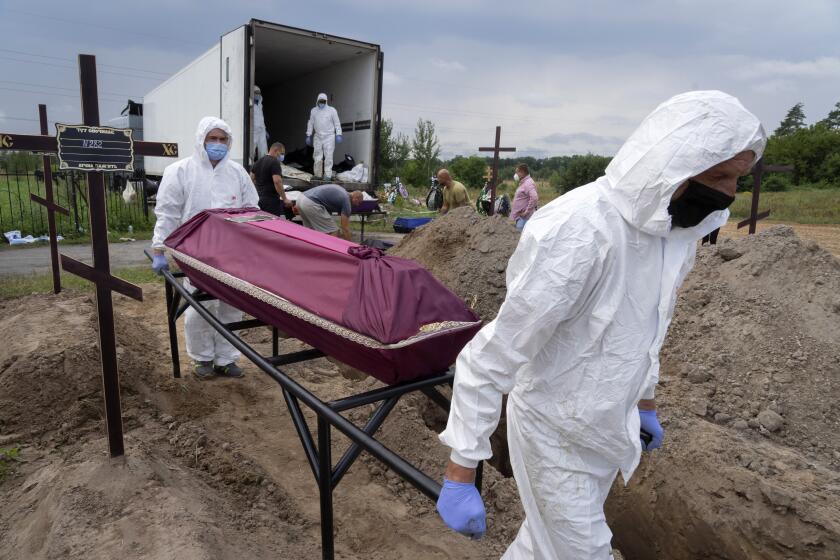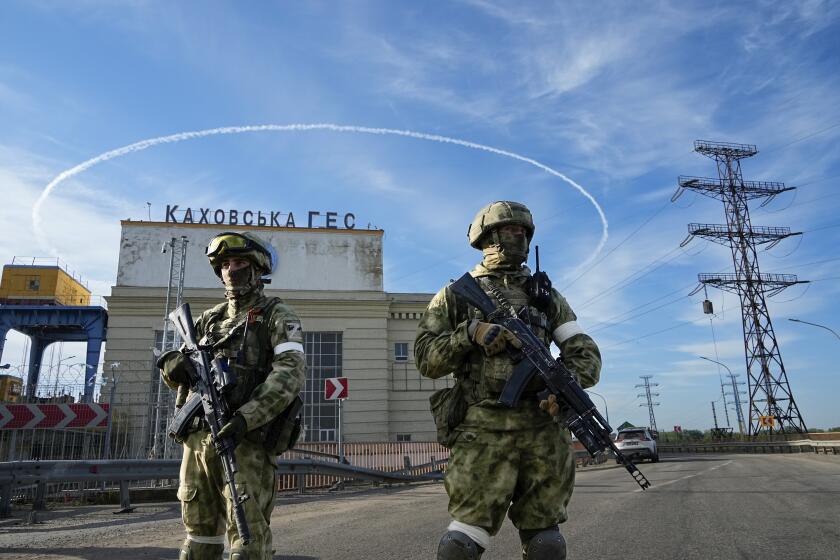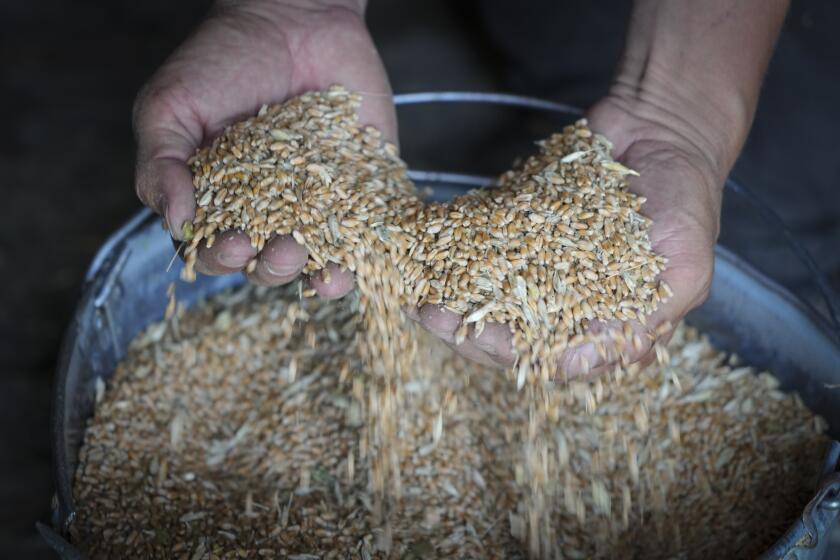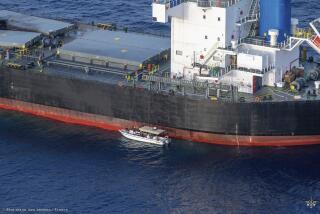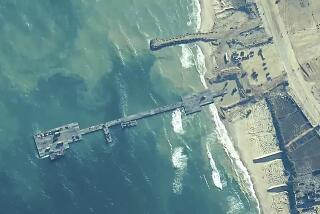Hopes rise for Ukraine grain shipment to drought-stricken Africa amid Russian shelling
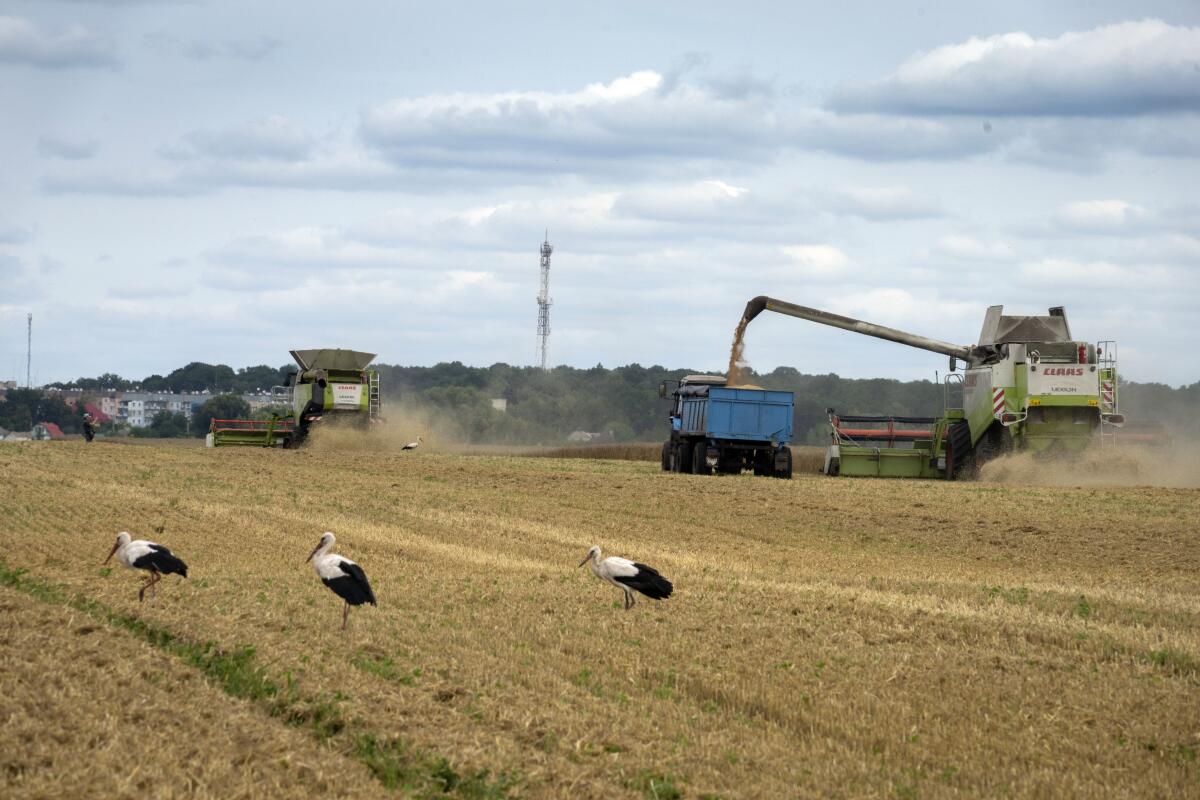
- Share via
KYIV, Ukraine — Expectations grew Friday that the first United Nations grain transport ship could soon leave for Africa from Ukraine even as more Russian shelling struck the east of the country.
The developments offered hope and despair as the conflict in Ukraine closes in on the half-year mark.
The war has sent food prices sky-high and left poorer countries fearful of receiving of losing supplies from the breadbasket of Europe. On Friday, European Council President Charles Michel announced that the first World Food Program transport for Africa was poised to depart from Ukraine.
He said the ship would load in a Ukrainian port and depart for Ethiopia, adding that the “cooperation of all involved actors is key” to avoid food shortage and hunger around the world. Such a move would be a step toward alleviating the food crisis caused by Russia’s invasion of Ukraine on Feb. 24.
The ship, Brave Commander, is to take more than 27,500 tons of grain and export it to Ethiopia through Djibouti.
While Ukrainian and Western officials have repeatedly spoken of the crucial role of grain shipments from Ukraine’s Black Sea ports in staving off a global food crisis, many of the first dozen vessels to leave the ports were bound for destinations in Turkey and Western Europe. Some analysts attributed this to the need to free up scarce docking space, saying that ships that have been trapped in the ports the longest were likely prioritized.
The civilian killings in and around Bucha, where 458 bodies have been found so far, have come to symbolize the brutality of Russia’s war on Ukraine.
Ethiopia, along with neighboring Somalia and Kenya, is in the grip of the worst drought in four decades in the Horn of Africa. Thousands of people across the region have died from hunger or illness this year. Forecasts for the coming weeks indicate that, for the first time, a rainy season will fail to materialize for the fifth consecutive time. Millions of livestock, the basis of many families’ wealth and food security, have died.
It makes any resumption of food shipments all the more welcome.
If such news provided a rare glimmer of hope, it was offset by the incessant fighting in eastern Ukraine, where the war entered its 170th day. The town of Kramatorsk, in the eastern Donbas industrial heartland, was hit by 11 rockets overnight. Seven people were killed and 14 others were wounded in the region, which remains cut off from gas, running water and electricity.
“Three-quarters of the population of the region have already been evacuated, because incessant shelling by the Russian army doesn’t leave civilians any choice — it’s either to die from wounds, or from hunger and cold in winter,” Donetsk regional Gov. Pavlo Kyrylenko told Ukrainian television.
Stealth operations and assistance from Ukrainian guerrilla forces pose a growing challenge to Russia’s grip on occupied areas in southeastern Ukraine.
The world also continued to worry about the threat of a nuclear disaster in eastern Ukraine, where shelling has continued to hit an area near Europe’s largest nuclear plant.
Shelling near the Russian-controlled Zaporizhzhia power plant continued overnight. Russian forces fired more than 40 rockets at the city of Marhanets, which is across the Dnieper River from the facility. Three people were wounded in the most recent shelling, including a 12-year-old boy.
The neighboring city of Nikopol was shelled as well, said Valentyn Reznichenko, the governor of the Dnipropetrovsk region.
The U.N. nuclear chief warned late Thursday that “very alarming” military activity at the nuclear plant could lead to dangerous consequences.
Russia’s invasion of Ukraine has upended the operations of what was the world’s fourth-largest grain exporter, with global consequences.
International Atomic Energy Agency Director-General Rafael Grossi urged Russia and Ukraine, who blame each other for the attacks at the plant, to immediately allow nuclear experts to assess damage and evaluate safety and security at the sprawling nuclear complex, where the situation “has been deteriorating very rapidly.”
He pointed to shelling and several explosions at Zaporizhzhia last Friday that forced the shutdown of the electrical power transformer and two backup transformers. That forced the shutdown of one nuclear reactor.
More to Read
Sign up for Essential California
The most important California stories and recommendations in your inbox every morning.
You may occasionally receive promotional content from the Los Angeles Times.
